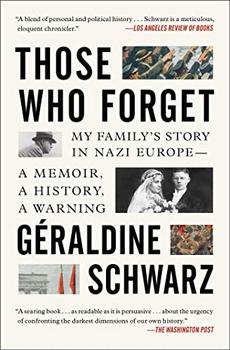Summary | Excerpt | Reading Guide | Reviews | Beyond the book | Read-Alikes | Genres & Themes | Author Bio

This never-before-translated masterpiece—by a heroic best-selling writer who saw his life crumble under the Nazis— is based on a true story. It presents a richly detailed portrait of life in Berlin under the Nazis and tells the sweeping saga of one working-class couple who decides to take a stand when their only son is killed at the front.
First published in Germany in 1947, Every Man Dies Alone is a true masterpiece from a bestselling writer who saw his life crumble following his decision not to flee Germany and his refusal to join the Nazi party. The novel presents a richly detailed portrait of life in Berlin under the Nazis and tells the sweeping saga of one working-class couple’s decision to take a stand when their only son is killed at the front. With nothing but their grief and each other against the awesome power of the Reich, Otto and Anna Quangel launch a simple, clandestine resistance campaign that soon has an enraged Gestapo on their trail, and a world of terrified neighbors and cynical snitches ready to turn them in. In the end, Every Man Dies Alone is more than an edge-of-your-seat thriller, more than a moving romance, even more than literature of the highest order—it’s a deeply stirring story of two people standing up for what’s right, and for each other.
Although it isn't a perfect novel, I would recommend it for Fallada's talent in showing us that sometimes the most frightening part of a war isn't dramatic at all -- it's the psychological game, that tension arising from waiting for something to happen, and wondering if it ever will, that slowly begins to wear the spirit down...continued
Full Review
 (729 words)
(729 words)
(Reviewed by Karen Rigby).
 Every Man Dies Alone is inspired by Elise and Otto Hampel, a blue collar couple. Elise and Otto eluded the police and the Gestapo from September 1940-42, "leaving hundreds of postcards calling for civil disobedience and workplace sabotage all over Berlin."
Every Man Dies Alone is inspired by Elise and Otto Hampel, a blue collar couple. Elise and Otto eluded the police and the Gestapo from September 1940-42, "leaving hundreds of postcards calling for civil disobedience and workplace sabotage all over Berlin."
 One of the frequent subjects of the Hampels' postcards was the Winter Relief Fund, a seasonal charity backed by the Nazis, but widely suspected of being open to graft. A considerable public show was made of the fund, and not contributing to it was seen as a form of disloyalty. The Hampels used the fund as a touchstone of their opposition in part because "pressure to contribute was considerable, and armbands and pins were distributed for public display to identify donors -- and ...
One of the frequent subjects of the Hampels' postcards was the Winter Relief Fund, a seasonal charity backed by the Nazis, but widely suspected of being open to graft. A considerable public show was made of the fund, and not contributing to it was seen as a form of disloyalty. The Hampels used the fund as a touchstone of their opposition in part because "pressure to contribute was considerable, and armbands and pins were distributed for public display to identify donors -- and ...

If you liked Every Man Dies Alone, try these:

by Géraldine Schwarz
Published 2022
Those Who Forget, published to international awards and acclaim, is journalist Géraldine Schwarz's riveting account of her German and French grandparents' lives during World War II, an in-depth history of Europe's post-war reckoning with fascism, and an urgent appeal to remember as a defense against today's rise of far-right nationalism.

by Maria Hummel
Published 2015
The novel bears witness to the shame and courage of Third Reich families during the devastating final days of the war, as each family member's fateful choice lead the reader deeper into questions of complicity and innocence, to the novel's heartbreaking and unforgettable conclusion.